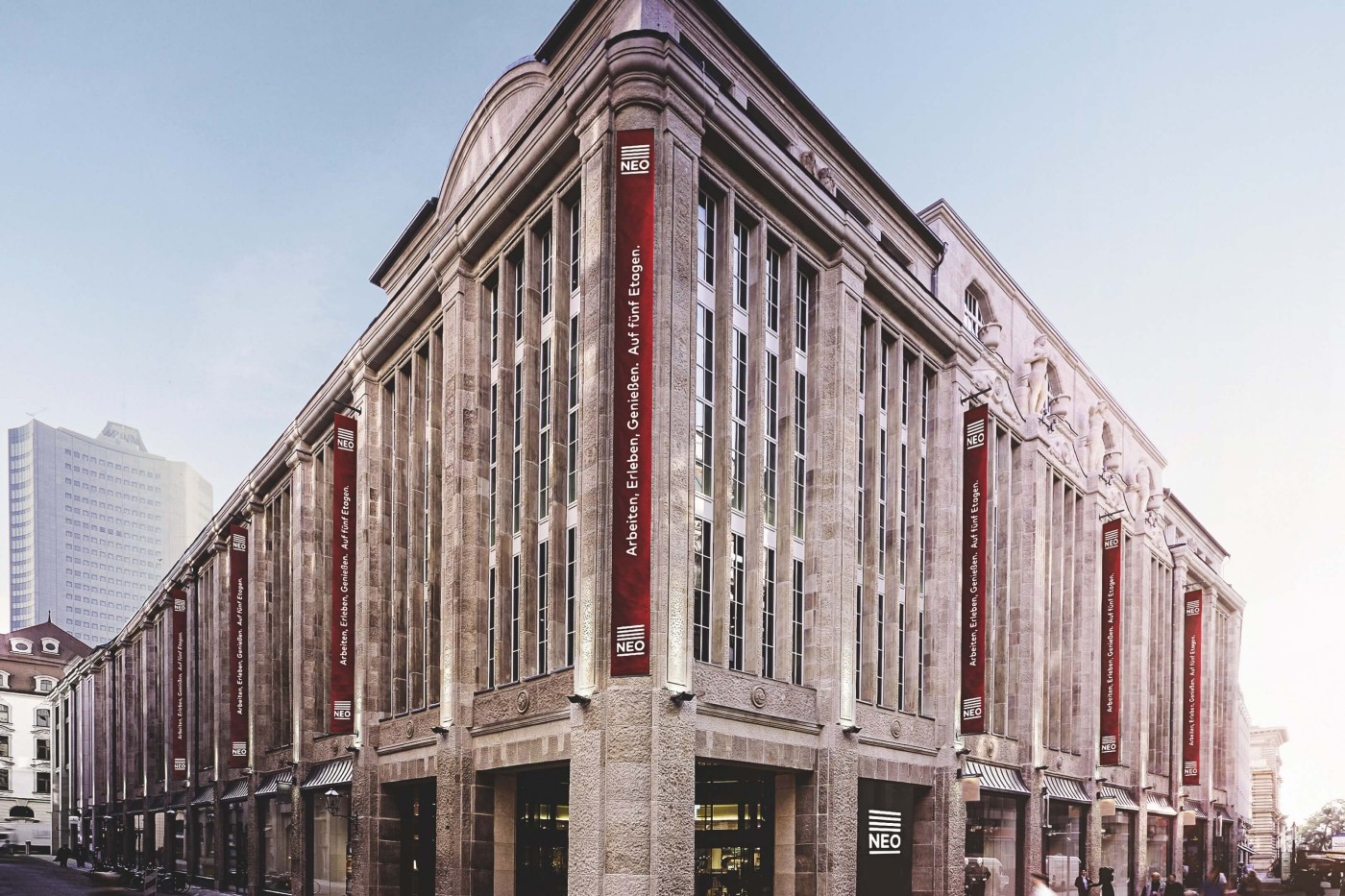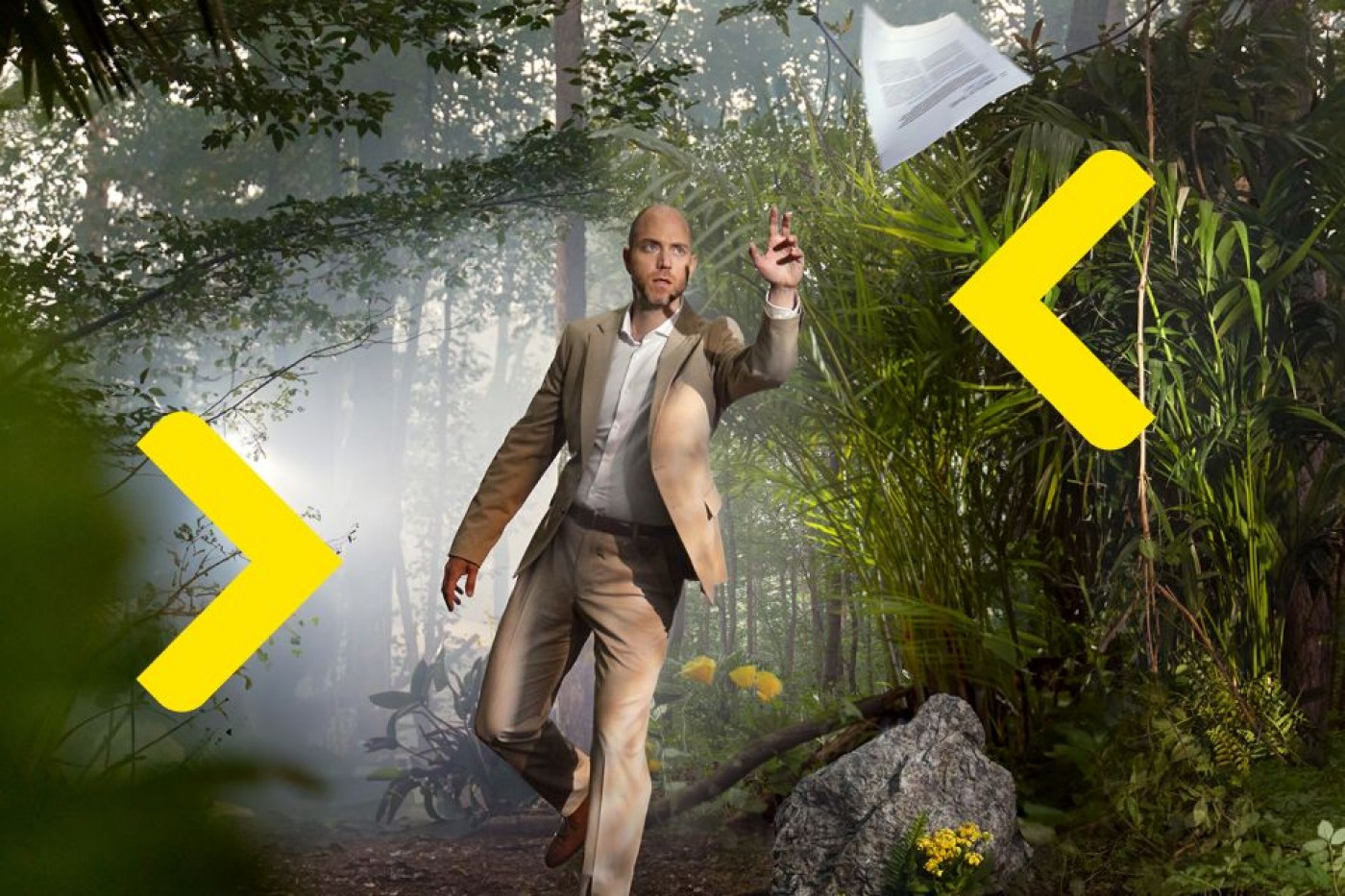
Redefining Urban Spaces: The NEO Project Success | RBI Insights
🏛️🌿 Curious about sustainable redevelopment? Learn how the iconic NEO department store in Leipzig was transformed with RBI’s support to achieve LEED certification.
In 2023, the re-development of the historic NEO department store in Leipzig broke new ground by aiming for one of the highest LEED certifications in Germany, with RBI playing a pivotal role as the senior lender and agent for the 105 million EUR loan. Alexandra Wagner, member of the advisory team in this landmark project, shares insights into transforming a monumentally protected building into a state-of-the-art mixed-use facility, the challenges encountered, and how partnering with RBI made this ambitious vision a reality.

Can you summarize the NEO project for us?
The NEO project centers on re-developing a historically protected art deco department store in Leipzig’s pedestrian zone into a modern, mixed-use office building with retail space. It’s the first monumental department store renovation in Germany to aim for one of the highest LEED certifications. The vision was to modernize this iconic building while preserving its historic facade, blending the architectural heritage with contemporary design and amenities. This project not only seeks to enhance the urban landscape of Leipzig but also aims to set a new benchmark for sustainable redevelopment in historic urban centers.
How did this project idea evolve, and what role did RBI play?
Several years ago, the client introduced the idea of acquiring NEO to RBI. From the beginning, they recognized its potential in Leipzig, Germany’s fastest-growing city. As the idea evolved into a detailed plan, the expert team at RBI contributed insights at every stage, participating in sessions with architects and constructors to ensure a deep understanding of the project. RBI is providing a 105 million EUR real estate finance loan over five years, acting as a senior lender and agent. Their involvement helped us transform this iconic building into a landmark by supporting our ambition with a financing plan that understood the importance of using premium materials and achieving top energy efficiency standards.
What were the project’s main financial and sustainability goals and how could RBI help to fulfill them?
The client has always been committed to integrating ESG principles across the developments, validated by respected external certifications such as LEED. Financially, this means that while the immediate costs might be higher, the long-term value created through sustainable practices is substantial. By adhering to stringent environmental standards, prime tenants could be attracted who prioritize ESG-compliant properties, demonstrating that sustainability can add significant value and marketability to the property.
RBI has been a longstanding supporter, understanding that sustainable buildings attract sustainable tenants and contribute positively to the overall ecosystem. They offered a 105 million EUR non-revolving real estate facility and an interest rate hedge to support this transformation. RBI's belief in sustainability aligns with our long-term, trendsetting strategy.
What were the main challenges encountered, particularly regarding sustainability?
The post-Covid landscape, coupled with the economic fallout from the Ukraine war, resulted in rising construction costs and delays, which affected tenant decisions and leasing activity. Through open communication and effective cost management, we succeeded in keeping the project on track, reaffirming RBI's confidence in our ability to navigate these challenges.
Can you describe what LEED certification entails and its significance?
LEED certification is a global benchmark for energy efficiency, environmental responsibility, and resource optimization. Achieving this certification means the building meets the highest standards in these areas, reflecting a thoughtful adaptation to ESG principles. The certification process encompasses minimizing carbon emissions, reducing energy consumption, improving indoor air quality, and enhancing occupant well-being. Additionally, achieving LEED status ensures the building's resilience to future environmental and regulatory changes, securing its long-term market appeal and sustainability. It adds a layer of trust for tenants, investors, and regulatory bodies, demonstrating the property upholds the highest sustainability standards throughout its lifecycle, making it a valuable and future-proof asset.
Supporting such projects underpins RBI's commitment to responsible lending and environmental stewardship. The NEO building is the first department store conversion in Germany to achieve LEED certification, setting a benchmark for future developments.
Thank you for sharing your insights!

Make investing in sustainability happen
Continue your path of sustainable growth with tailored green finance solutions.